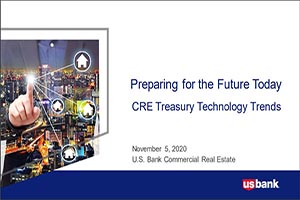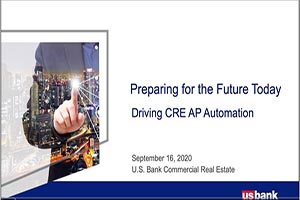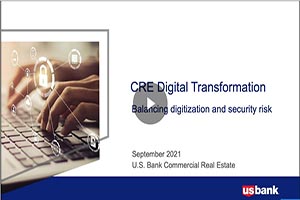
High-yield bond issuance: 5 traits lawyers should look for in a service provider

4 reasons your Luxembourg fund needs an in-market administrator

Luxembourg's thriving private debt market

10 ways a global custodian can support your growth

The benefits of bundling services for Luxembourg regulated funds

The benefits of a full-service warehouse custodian

Key considerations for launching an ILP

Ask an expert Q&A: 3 US ETF trends and their impact in Europe

For small business growth, consider the international market

MSTs: An efficient and cost-effective solution for operating a mutual fund

Rethinking European ETFs: Strategy wrappers and a means to an end

Case study: U.S. asset manager expands to Europe

What are exchange-traded funds?

A first look at the new fund of funds rule

Combined strength: Luxembourg and your fund administrator

Easier onboarding: What to look for in an administrator

ESG-focused investing: A closer look at the disclosure regulation

High-yield bond issuance: how to avoid 5 common pain points

Luxembourg funds: 5 indicators of efficient onboarding

Programme debt clients want reliable service – no matter where they’re based

Programme debt Q&A: U.S. issuers entering the European market

Service provider due diligence and selection best practices

3 tips to maintain flexibility in supply chain management

Inherent flexibility and other benefits of collective investment trusts

The reciprocal benefits of a custodial partnership: A case study

Insource or outsource? 10 considerations

Depositary services: A brief overview

3 innovative approaches to ESG investing in Europe

Administrator accountability: 5 questions to evaluate outsourcing risks

European outlook: Trustee experience more important than ever

Liquidity management: A renewed focus for European funds

Emerging trends in Europe: An outlook from multiple perspectives

IRC Section 305(c): Deemed distributions and related regulations

Business risk management for owners of small companies

Avoiding the pitfalls of warehouse lending

Complying with changes in fund regulations

What is CSDR, and how will you be affected?

Government agency credit card programs and PCI compliance

Addressing financial uncertainty in international business

Webinar: CSM corporation re-thinks AP

Evaluating interest rate risk creating risk management strategy

5 tips for managing your business cash flow

The future of financial leadership: More strategy, fewer spreadsheets

Automate escheatment for accounts payable to save time and money

How to fund your business without using 401(k) savings

5 questions you should ask your custodian about outsourcing

The growing importance of a strong corporate culture

Is your restaurant Google-friendly?

Employee benefit plan management: trustee vs. custodian

Empowering managers with data automation and integration

Alternative investments: How to track returns and meet your goals

Preparing for your custodian conversion

High-cost housing and down payment options in relocation

An asset manager’s secret to saving time and money

Challenging market outlook reveals the power of partnership

Crypto + Relo: Mobility industry impacts

For today's relocating home buyers, time and money are everything

How to increase your savings

Improve online presence your business

Refining your search for an insurance custodian

In a digital world, Liberty Puzzles embraces true connection

Maximizing your deductions: Section 179 and Bonus Depreciation

3 simple brand awareness tips for your business

How to get started creating your business plan

5 tips to use your credit card wisely and steer clear of debt

Why Know Your Customer (KYC) — for organizations

Webinar: CRE technology trends

5 winning strategies for managing liquidity in volatile times

Middle-market direct lending: Obstacles and opportunities

4 questions you should ask about your custodian

Trends in economics, immigration and mobility policy

Putting home ownership within reach for a diverse workforce

How jumbo loans can help home buyers and your builder business

How to apply for a business credit card

Prioritizing payroll during the COVID-19 pandemic

Meet your business credit card support team

Omnichannel retail: 4 best practices for navigating the new normal

Streamline operations with all-in-one small business financial support

How to reward employees and teams who perform well

8 ways to increase employee engagement

Business tips and advice for Black entrepreneurs

10 tips on how to run a successful family business

Empowering team members

Unique requirements of large private equity firms

Why retail merchandise returns will be a differentiator in 2022

How a travel clothing retailer is staying true to its brand values

Use this one simple email marketing tip to increase your reach

Opening a business on a budget during COVID-19

Rule 18f-4: The limited use exception

How a small business owner is making the workplace work for women

How (and why) to get your business supplier diversity certification

Business credit card 101

Checklist: Increase lead generation with website optimization

The role of ethics in the hiring process

Choosing your M&A escrow partner

How to test new business ideas

How a group fitness studio made the most of online workouts

Year-end financial checklist

How community gave life to lifestyle boutique Les Sol

The San Francisco bridal shop that’s been making memories for 30 years

How Wenonah Canoe is making a boom in business last

How to build a content team

Travel for less: Smart (not cheap) ways to spend less on your next trip

Tips to overcome three common savings hurdles

Helpful tips for safe and smart charitable giving

Allowance basics for parents and kids

How Shampoo’ed is transforming hair and inspiring entrepreneurs

Webinar: AP automation for commercial real estate

Crack the SWIFT code for sending international wires

How to spot a credit repair scam

6 ways to spring clean your finances and save money year-round

How to cut mindless spending: real tips from real people

Real world advice: How parents are teaching their kids about money

How to stop living paycheck to paycheck post-pay increase

Practical money tips we've learned from our dads

Give a prepaid rewards card for employee recognition

5 unique ways to take your credit card benefits further

5 tips to use your credit card wisely and steer clear of debt

30-day adulting challenge: Financial wellness tasks to complete in a month

Celebrity Cake Studio’s two decades of growth and success

How Al’s Breakfast is bringing people together

What you should know about licensing agreements

Webinar: CRE Digital Transformation – Balancing Digitization with cybersecurity risk

Webinar: CRE Digital Transformation – Balancing Digitization with cybersecurity risk

5 steps for creating an employee recognition program

How to hire employees: Employee referral vs. external hiring

Break free from cash flow management constraints

How a bar trivia company went digital during COVID-19

How do interest rates affect investments?

Maximizing your deductions: Section 179 and Bonus Depreciation

Evaluating interest rate risk creating risk management strategy

